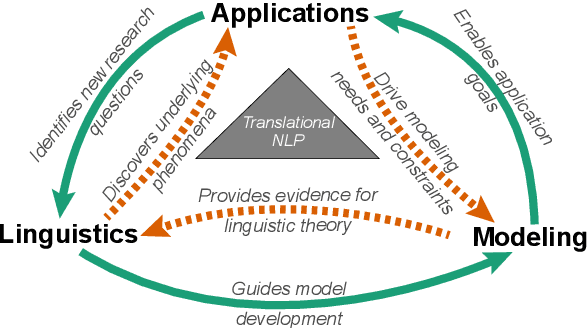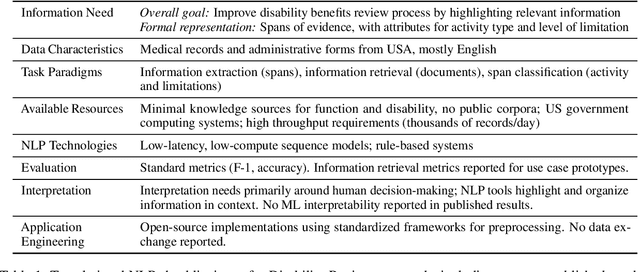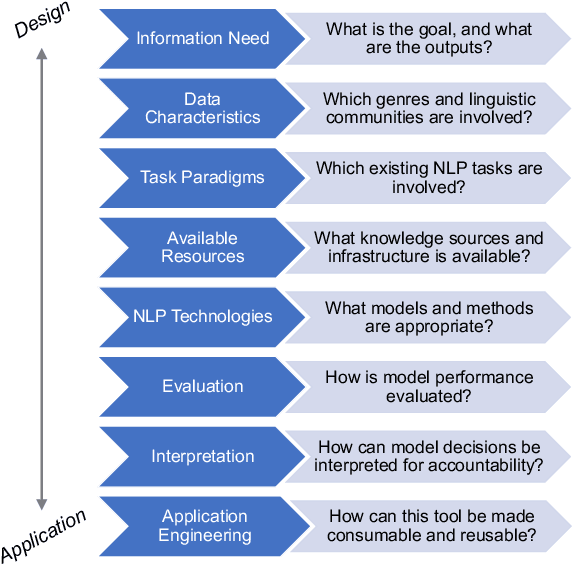Translational NLP: A New Paradigm and General Principles for Natural Language Processing Research
Paper and Code
Apr 16, 2021



Natural language processing (NLP) research combines the study of universal principles, through basic science, with applied science targeting specific use cases and settings. However, the process of exchange between basic NLP and applications is often assumed to emerge naturally, resulting in many innovations going unapplied and many important questions left unstudied. We describe a new paradigm of Translational NLP, which aims to structure and facilitate the processes by which basic and applied NLP research inform one another. Translational NLP thus presents a third research paradigm, focused on understanding the challenges posed by application needs and how these challenges can drive innovation in basic science and technology design. We show that many significant advances in NLP research have emerged from the intersection of basic principles with application needs, and present a conceptual framework outlining the stakeholders and key questions in translational research. Our framework provides a roadmap for developing Translational NLP as a dedicated research area, and identifies general translational principles to facilitate exchange between basic and applied research.
 Add to Chrome
Add to Chrome Add to Firefox
Add to Firefox Add to Edge
Add to Edge